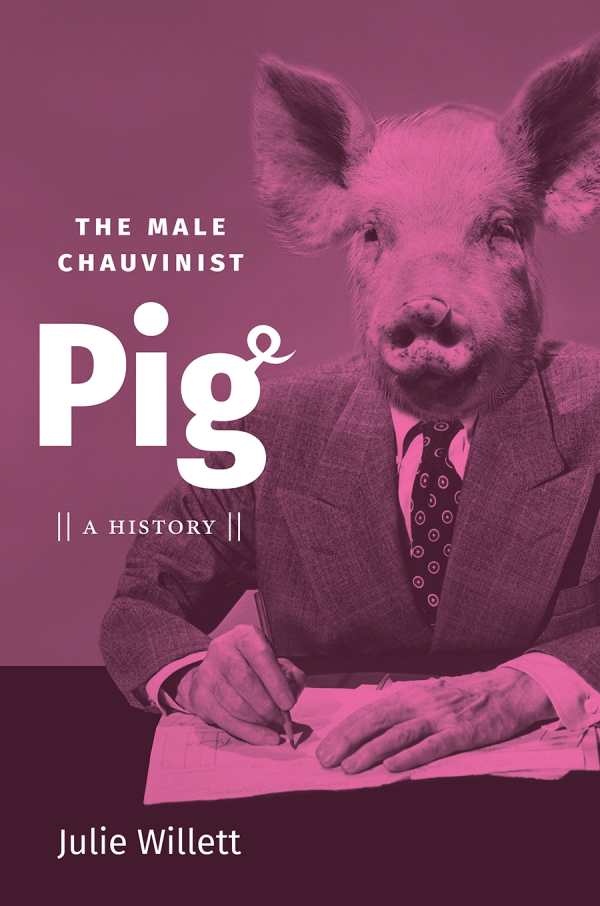The Male Chauvinist Pig
A History
Historian Julie Willett chronicles the rise of the 1970s caricature of masculinity and sexism in The Male Chauvinist Pig.
This academic work dives into second wave feminism and the pop culture that surrounded it, beginning with misogynistic sitcom jokes and ending with the multifaceted cruelty of Trumpism. It draws a straight line between the points, acknowledging how connected humor and power are in American society. With the popularity of home televisions came the expectation that presidents would be personable and funny, which bloomed into chauvinism that fed off of the idea of the feminist killjoy. Willett posits that the current political climate is due, in part, to decades of ignoring the political power that arises out of such playboy ideologies.
Willett also makes important arguments about the fault lines between feminism and antiracism, and the ways in which white feminism often excludes Black women. She explores the linguistic history of the term “male chauvinist pig,” from the patriotic French soldier Chauvin to the civil rights movement dubbing police “pigs.” She goes into tertiary descriptors, too, dissecting the main difference between a chauvinist pig and a macho man: race. These points are emphasized with references to Saturday Night Live skits and other staples of American entertainment, showcasing how widespread such sexist and racist notions were, and continue to be.
Alongside Willett’s detailed recaps and analyses of sitcom episodes and other television appearances are stills from the shows, exhibiting the buffoonery of this brand of sexism. Meanwhile, the pig became an emblem of pride for many men, and with that came merchandise also photographed in the book—a tie, a pornography cover, a ceramic pig crossing its arms.
The Male Chauvinist Pig is a thorough academic work that explores the history of the term and identity that’s lived for decades at the cost of women’s equality.
Reviewed by
Ashley Holstrom
Disclosure: This article is not an endorsement, but a review. The publisher of this book provided free copies of the book to have their book reviewed by a professional reviewer. No fee was paid by the publisher for this review. Foreword Reviews only recommends books that we love. Foreword Magazine, Inc. is disclosing this in accordance with the Federal Trade Commission’s 16 CFR, Part 255.

